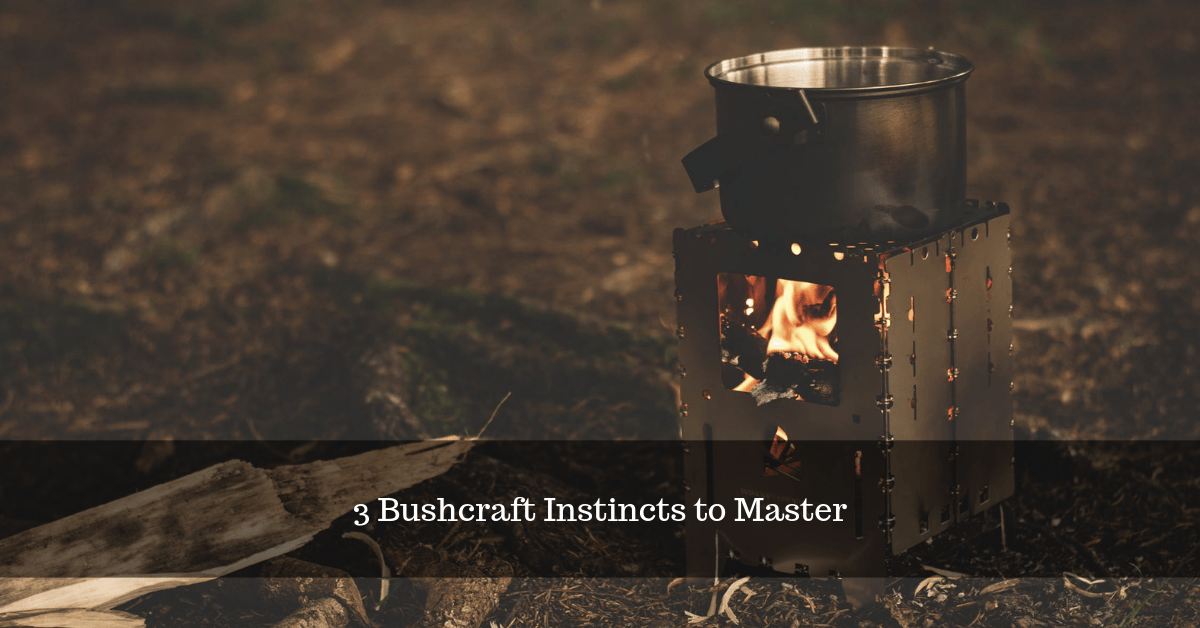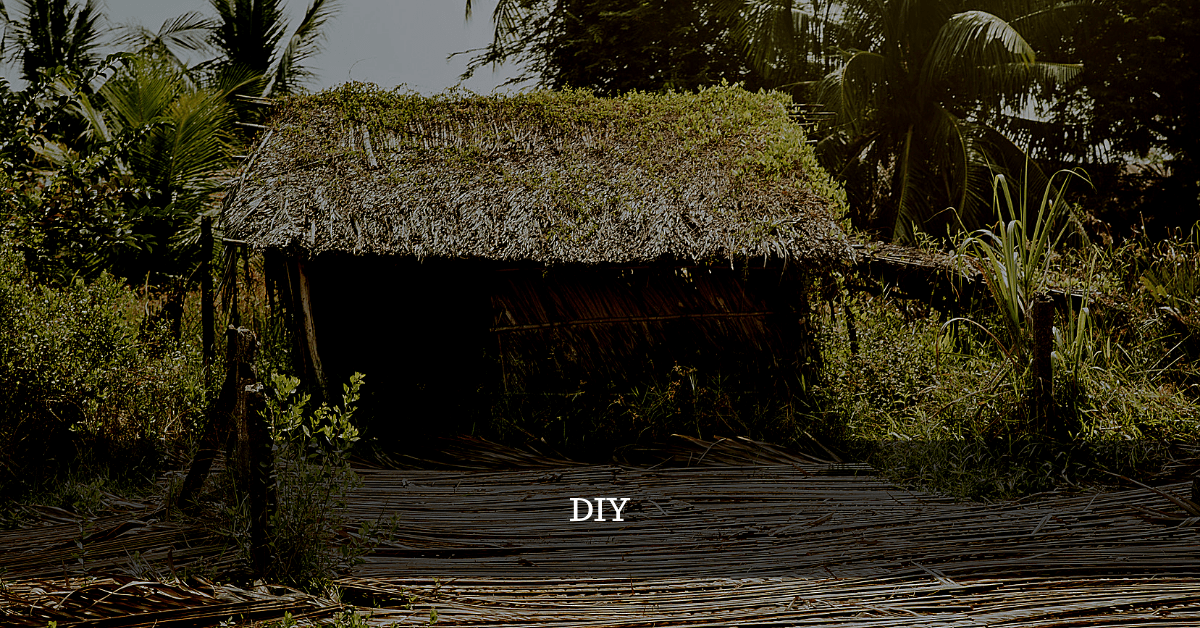Survivalist training and outdoor skills have been quickly growing in popularity in recent years. More people are choosing to learn how to survive in the wilderness with basic skills that were employed for thousands of years by humans. These skills have earned the moniker “bushcraft.”
Bushcraft enthusiasts have trained their brains to think differently when confronted with the untamed elements of the wilderness. The skills and techniques these experts use are a mix of Old World methodology and modern technology without the help of electronics. Bushcraft goes back to basics and survival in its simplest and most practical forms.
Inside the Bushcraft Brain
A bushcraft survivalist does not simply rely on tools and a few tricks to keep themselves alive in an unforeseen emergency. A bushcraft survivalist learns how to survive in the wilderness because they can.
Tools are a big part of bushcraft, but bushcraft is much more than using a knife or hunting tools. The brains of a bushcraft survivalist are filled with information about their environment, the usefulness of plants, fire-building skills, shelter construction, water filtration, trap making and setting, navigation, and more.
Below are 20 interesting facts housed in the bushcraft brain.
1. You Live Off the Land
Bushcraft isn’t an extended camping trip. It involves survival using what you have on hand and the environment surrounding you. You are not trying to keep yourself going until you are rescued. You are building a livable space for yourself among the wilderness, harnessing nature’s vast resources for your own purposes.
2. You Start With a Good Knife
Any serious bushcraft survivalist won’t skimp on a quality knife. A knife is a tool of many uses when wielded properly and efficiently. Bushcraft knives are sturdy and sharp and can be used for everything from slicing materials for a fire to hunting and killing an animal when necessary.
3. Fire Can Be Made Numerous Ways
In bushcraft, matches and lighters are luxury, but not unheard of entirely. Other methods should always be in your arsenal of knowledge, too. Bushcrafters learn how to make fire from a fire drill, striking rocks to form a spark, and the use of a mirror to reflect sunlight on tinder until it smolders.
4. You Must Respect Nature
Bushcrafters respect their environment and understand that they may not be the apex predator in the wilderness. Blithely exploring a natural environment can get you hurt or killed. Be mindful of your surroundings including, animals, plants, insects, natural formations, water sources, and weather. Underestimating the wild is not just dangerous it’s stupid.
5. Your Clothing is Your Shelter
Building a shelter may be on the top of the list for an inexperienced survivalist, but you should consider shelter when you dress before heading out into the wilderness.
Your choice of clothing should keep you warm if necessary, protect your skin from sun, poisonous leaves, and poor weather conditions. Clothing isn’t meant to be anything more than a temporary measure for shelter, but it should be fully utilized.
6. Hunting and Trapping Provides More Than a Meal
Part of bushcraft focuses on hunting and building trap devices to catch game and fish. Without protein, the body has a more difficult time keeping up the energy needed to continue surviving in a harsh environment.
You should also learn skills on how to gut and break down different animals for food preparation and reusing certain parts of the animal like tendons and bones.
7. You Need To Be a Hunter-Gatherer
Hunting is useful but is not guaranteed to result in a substantial meal every time out. Foraging is an excellent way to sustain your diet when meat is unavailable. Edible plants and berries can be good sources of much-needed vitamins that meat cannot provide.
8. Tracking Provides You With Information
Tracking animals is essential when hunting, but bushcrafters will tell you that you learn more than where an animal is located. Animals can lead you to a viable water source or a food source you can forage. Keep in mind, animals need to eat and drink as well, and they are probably more familiar with their surroundings than you are.
9. Knot tying is a Versatile and Necessary Skill
Learning to tie a variety of knots can make or break your survival experience. Knots are used to build shelters, fashioning tools or weapons, constructing rafts and traps, or creating equipment like baskets or sleds.
10. Water is Your Lifeblood
The need for viable water cannot be overstated. Bushcrafters must know how to find, purify, filter, and store water. Different methods can be employed to make water safe to drink, but boiling is among the most popular.
Traveling with a pot to boil and store water in is a good idea, but you should also have another vessel to collect rainwater, which doesn’t need to be filtered before drinking.
11. Waste Can Do You Harm
If you are fortunate enough to hunt down an animal, but there is too much meat to eat in one sitting, it is important that the meat does not go to waste. Learn how to preserve the meat safely by drying or smoking the leftovers into jerky for later meals.
By allowing the meat to rot, you could be throwing the only source of food you have away until more is obtained and that is easier said than done in the wilderness.
12. Food Attracts Other Predators
Bushcrafters are mindful that they are surrounded by living things. Butchered animals, cooking meat, or rotting flesh can attract other hungry animals to your camp. Always keep food properly stored and discard unusable material far away, from where you’ve set up your camp.
13. Knowledge Can Keep You in Good Health
First aid skills are important because you are likely to be injured in some way while out in the wilderness. Without immediate access to help, you have only yourself to rely upon.
Natural remedies found in the environment can provide treatments for pain, fever, stomach upset, and other ailments, so do your homework!
Recommended Read: 7 Common Mistakes of Wilderness Survival
14. Bleach Can Purify Water
A couple of drops of bleach per pint of water can purify the water and make it safe to drink. The dirtier the water, the more drops you can add.
15. Dehydration Can Hit You Unexpectedly
You can become dehydrated without even realizing anything is wrong. Many body functions use water, using up what is already inside your body. Drink water often and rest frequently, especially in hot weather.
16. Bushcrafting Requires Research
Learning about the environment you will bushcraft in is vital to your success in the wilderness. Understanding a certain area allows you to get to know the layout of the area, the animals and plants, and which tools will be the most useful to you.
17. Packing Light Keeps You Nimble
Bringing tools you don’t need or are wrong for an environment is a waste of space and can weigh you down. You will move much faster if you are not encumbered by useless items.
18. Pine Needles Make a Great Tea
Fresh, green pine needles can be steeped in boiling water to drink for a Vitamin C boost. This is especially helpful if you are feeling under the weather.
19. Bushcrafting With a Partner Can Keep You Sane
A bushcraft experience can become lonely after awhile. Bringing a partner gives you someone to commiserate with and share the workload.
20. Documenting Your Experience is Part of the Learning
Keep an accurate account of your experiences as they happen in a journal. Bushcraft is a collection of skills that take time to hone and mistakes will inevitably be made. You will learn faster if you teach yourself how and what to improve upon.






